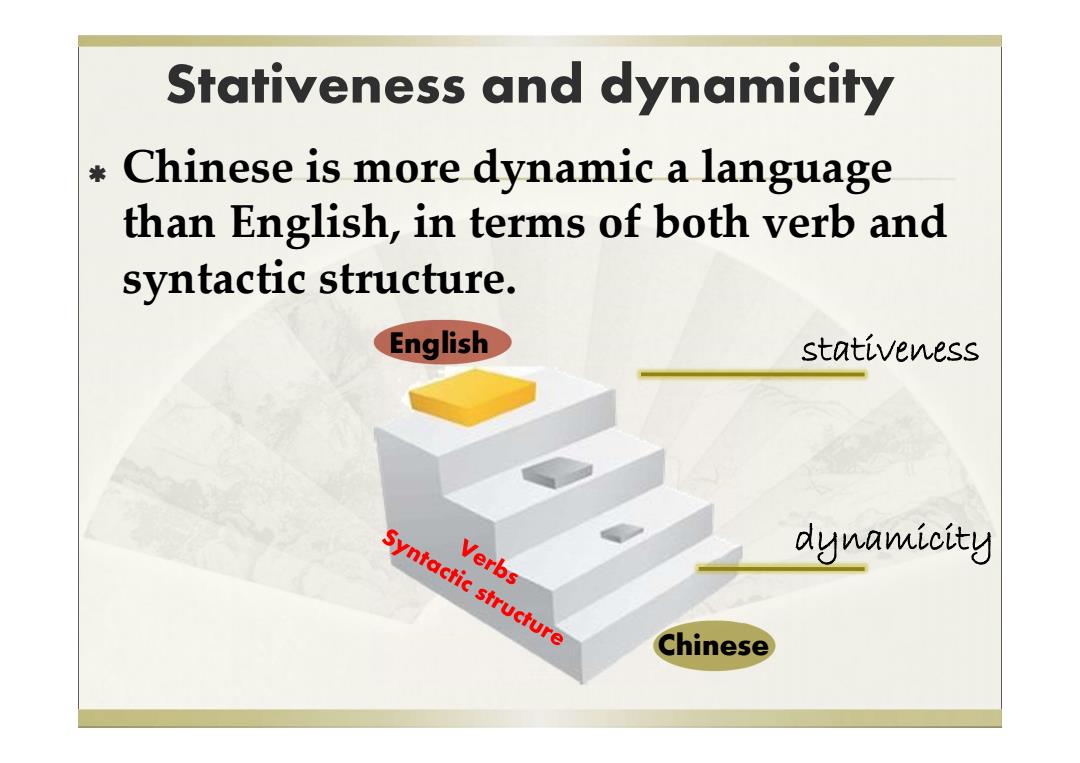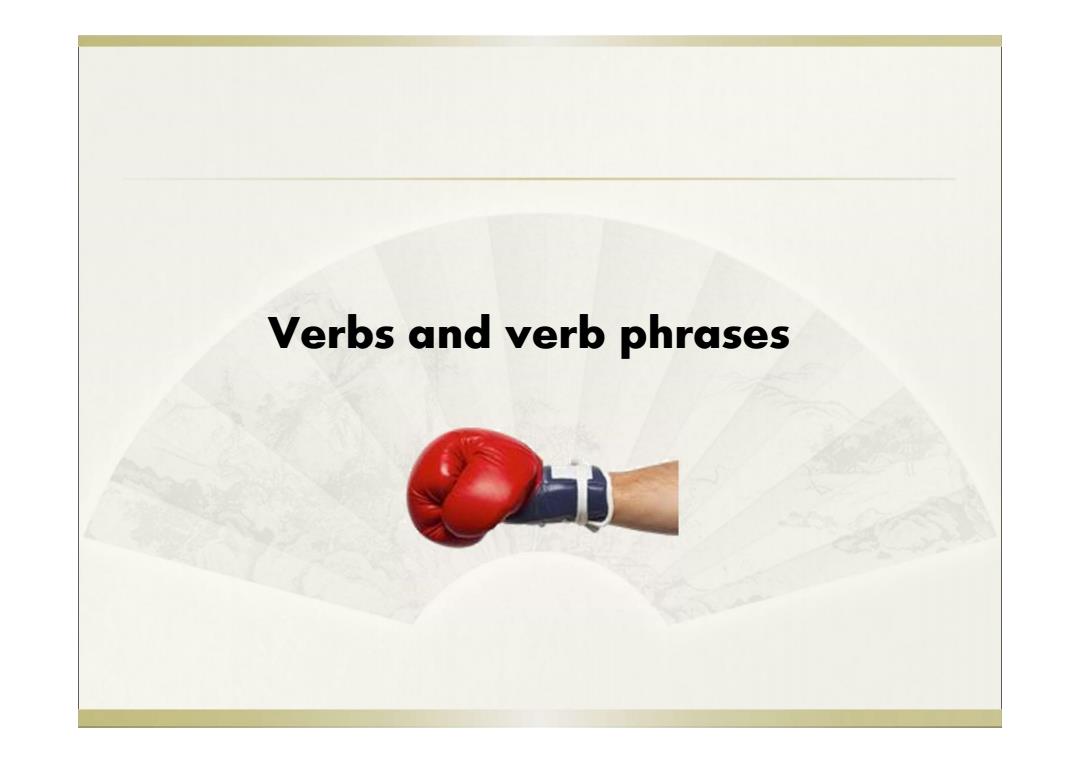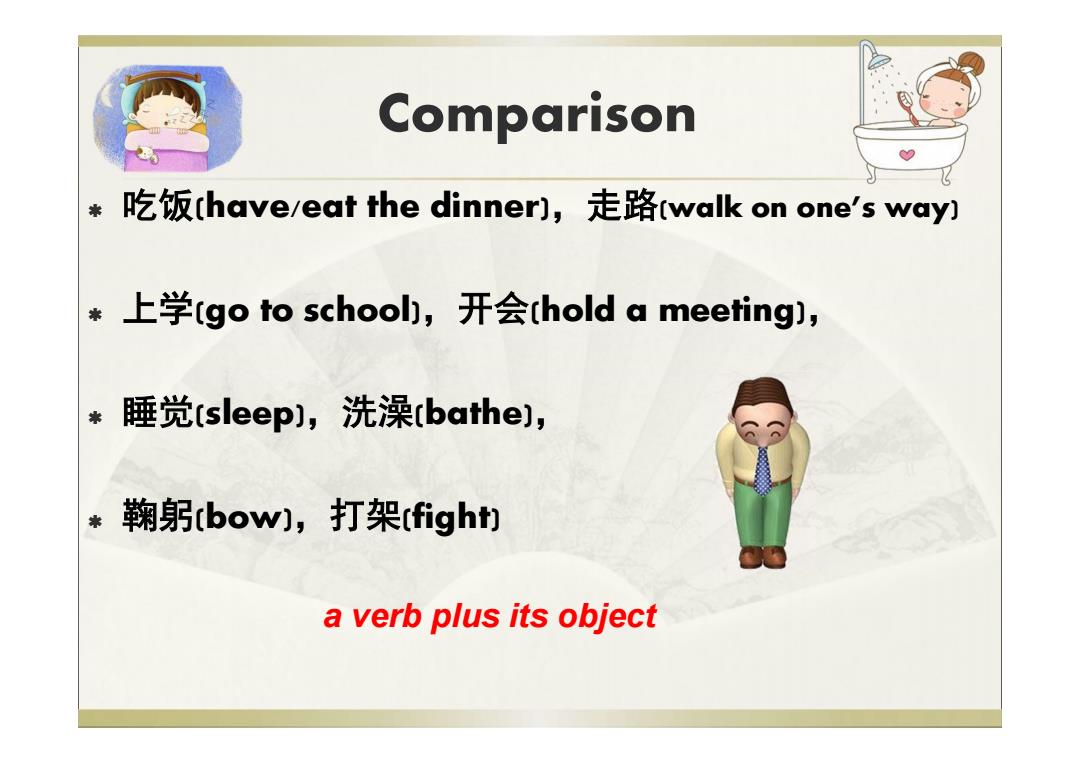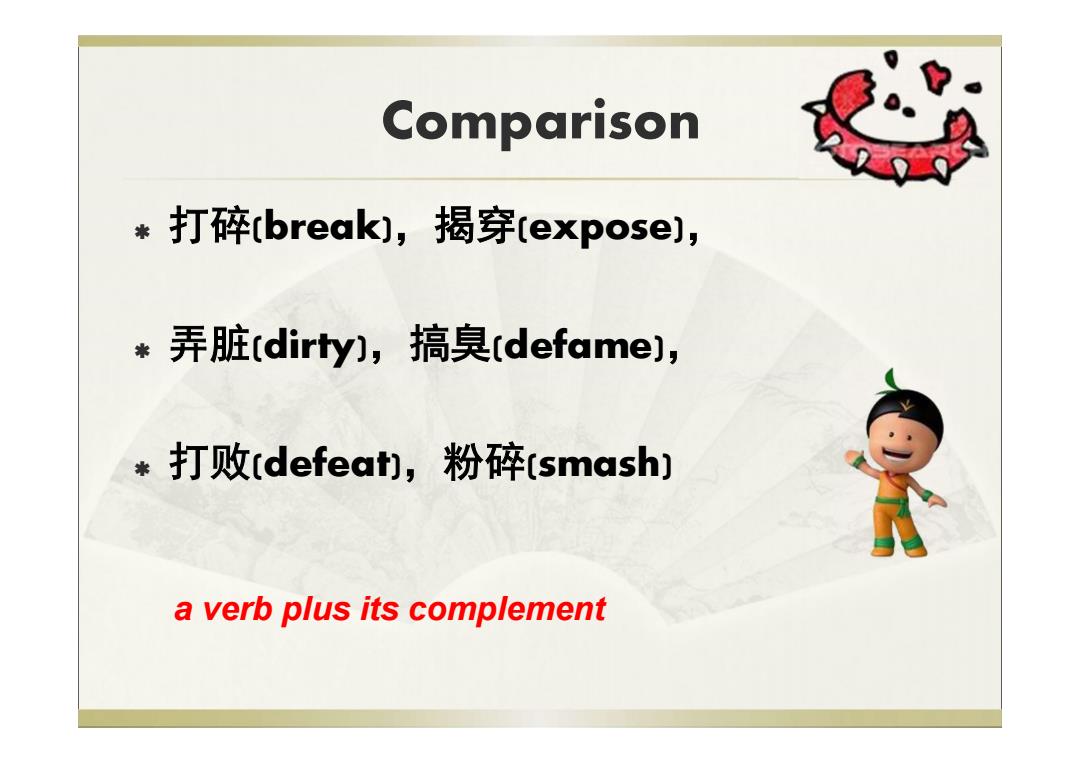
Stativeness and dynamicity Chinese is more dynamic a language than English,in terms of both verb and syntactic structure. English stativeness Syntactic structure Verbs dynamicity Chinese
Chinese is more dynamic a language than English, in terms of both verb and syntactic structure. Stativeness and dynamicity English Chinese stativeness dynamicity

Verbs and verb phrases
Verbs and verb phrases

Comparison *测量(measure),庆祝(celebrate), *思考(think), 欢呼(cheer), *比较(compare),批判(criticize) Repetition or synonymous verbs
Comparison 测量(measure), 庆祝(celebrate), 思考(think), 欢呼(cheer), 比较(compare), 批判(criticize) Repetition or synonymous verbs

Comparison 孝l 吃饭have/eat the dinner),走路walk on one'sway) *上学(go to school),开会hold a meeting), 睡觉(sleep],洗澡bathe), 鞠躬bow),打架fight) a verb plus its object
吃饭(have/eat the dinner),走路(walk on one’s way) 上学(go to school),开会(hold a meeting), 睡觉(sleep),洗澡(bathe), 鞠躬(bow),打架(fight) a verb plus its object Comparison

Comparison *打碎break),揭穿expose), *弄脏(dirty),搞臭(defame], *打败(defeat),粉碎smash) a verb plus its complement
打碎(break),揭穿(expose), 弄脏(dirty),搞臭(defame), 打败(defeat),粉碎(smash) a verb plus its complement Comparison